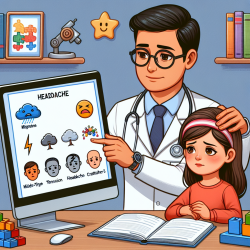The importance of mental health education in schools cannot be overstated. With the increasing prevalence of mental health issues among adolescents, schools are uniquely positioned to provide essential support and education. The recent study titled "Evaluating the Impact of Aevidum on Mental Health Knowledge, Attitudes, and Help-Seeking Behaviors in High School Students: A Mixed-Methods Study" offers valuable insights into how educational interventions can enhance mental health awareness and support among students.
The Aevidum Initiative
Aevidum, meaning "I've got your back," is a student-led mental health initiative that began in Lancaster, Pennsylvania. The program has expanded significantly and is now implemented in over 300 schools across Pennsylvania and neighboring states. The initiative includes both a mental health curriculum and club activities designed to increase awareness, promote help-seeking behaviors, and reduce stigma associated with mental health issues.
Study Overview
The study conducted a mixed-methods evaluation of the Aevidum curriculum and club activities across ten Pennsylvania high schools. It aimed to assess changes in students' mental health knowledge, help-seeking intentions, and school culture. The study utilized pre-post surveys, a randomized clinical trial design, and qualitative interviews with school staff to gather comprehensive data.
Key Findings
- Improved Mental Health Knowledge: Students who participated in the Aevidum curriculum reported significant increases in their ability to identify signs of depression and help peers access mental health resources.
- Enhanced Help-Seeking Behavior: There was a notable increase in students' intentions to seek help from phone helplines, crisis textlines, internet resources, school counselors, and teachers.
- School Culture Shifts: While quantitative data showed mixed results regarding changes in school culture, qualitative interviews with staff indicated a positive shift towards more open discussions about mental health.
Implications for Practitioners
The findings suggest that implementing structured mental health curricula like Aevidum can significantly enhance students' knowledge and willingness to seek help. Educators and school administrators should consider integrating such programs into their schools to foster a supportive environment where students feel comfortable discussing mental health issues.
Moreover, the study highlights the importance of involving school staff in these initiatives. Staff interviews revealed that they observed increased openness among students regarding mental health discussions. This underscores the role of educators not only as facilitators but also as active participants in promoting a positive school culture.
Encouraging Further Research
While the study provides valuable insights, it also points to areas needing further exploration. Future research could focus on the long-term impacts of such programs on students' mental health outcomes and the sustainability of positive cultural shifts within schools. Additionally, investigating the specific elements of the curriculum that contribute most significantly to these changes could inform the development of even more effective interventions.
Conclusion
The Aevidum initiative demonstrates how targeted educational programs can positively impact students' mental health knowledge and behaviors. By adopting similar strategies, practitioners can play a crucial role in supporting adolescent mental health within educational settings.
To read the original research paper, please follow this link: Evaluating the Impact of Aevidum on Mental Health Knowledge, Attitudes, and Help-Seeking Behaviors in High School Students: A Mixed-Methods Study.










